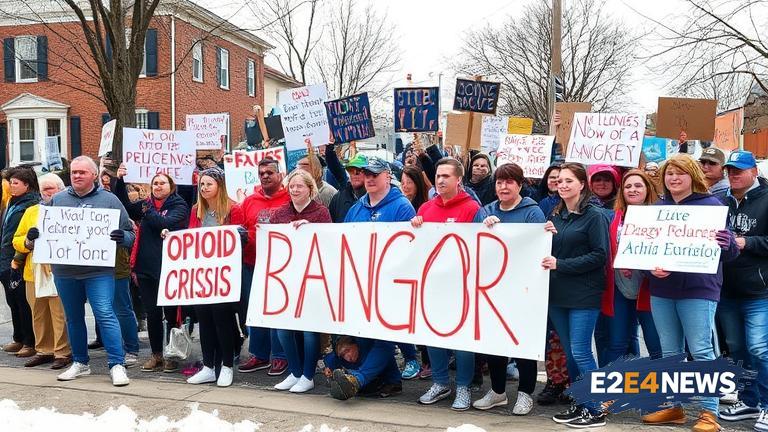The city of Bangor, Maine, recently witnessed a powerful display of community solidarity as local organizers convened an overdose awareness rally. The event aimed to raise awareness about the devastating impact of the opioid crisis on families and individuals in the region. With the opioid epidemic claiming thousands of lives across the United States, the rally served as a poignant reminder of the need for urgent policy changes. Local organizers emphasized the importance of addressing the root causes of addiction, rather than simply treating its symptoms. They advocated for increased funding for substance abuse treatment programs, improved access to mental health services, and the implementation of harm reduction strategies. The rally also provided a platform for individuals and families affected by the opioid crisis to share their stories and experiences. Many speakers highlighted the need for a more compassionate and evidence-based approach to addressing addiction, rather than relying on punitive measures. The event drew attention to the alarming rise in overdose deaths in Bangor and surrounding areas, with many attributing the surge to the increased presence of fentanyl and other synthetic opioids. Local health officials and law enforcement agencies were also in attendance, acknowledging the complexity of the issue and the need for a multi-faceted response. The rally concluded with a call to action, urging policymakers to prioritize the implementation of effective solutions to the opioid crisis. Organizers emphasized that policy changes must be guided by scientific evidence and community input, rather than political ideology. The event was widely covered by local media outlets, helping to raise awareness about the issue and mobilize public support for policy reforms. As the opioid epidemic continues to ravage communities across the United States, the Bangor overdose awareness rally served as a powerful reminder of the importance of collective action and advocacy. The rally’s message of hope and resilience resonated deeply with attendees, who left the event feeling inspired to make a difference. Local organizers are now working to build on the momentum generated by the rally, with plans to engage in ongoing advocacy efforts and community outreach initiatives. The city of Bangor has pledged to support these efforts, recognizing the critical role that community-based initiatives play in addressing the opioid crisis. As policymakers consider potential solutions to the epidemic, they would do well to heed the calls for policy changes emanating from communities like Bangor. By prioritizing evidence-based approaches and community-led initiatives, it may be possible to stem the tide of the opioid crisis and create a safer, healthier future for all. The rally’s emphasis on harm reduction strategies, such as naloxone distribution and safe injection sites, reflects a growing recognition of the need for innovative solutions to the epidemic. Furthermore, the event highlighted the importance of addressing the social determinants of health, including poverty, housing insecurity, and lack of access to education and employment opportunities. By tackling these underlying issues, it may be possible to reduce the likelihood of individuals turning to substance use as a coping mechanism. The Bangor overdose awareness rally demonstrates the power of community mobilization and advocacy in driving policy changes and promoting positive social change. As the opioid epidemic continues to evolve, it is essential that policymakers remain attuned to the needs and concerns of affected communities, working in partnership with local organizers and health experts to develop effective solutions. The rally’s impact is likely to be felt for months to come, as local organizers continue to push for policy reforms and community-based initiatives. Ultimately, the event serves as a testament to the enduring power of community solidarity and advocacy in the face of adversity.
